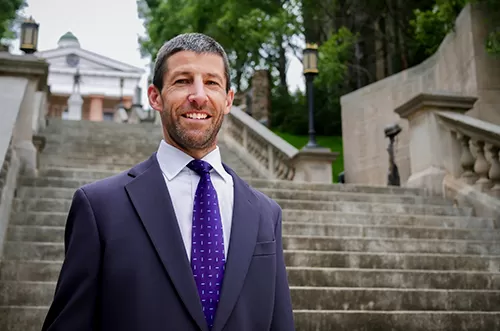Radiance Capital Receivables v. Foster, 2019 Va. LEXIS 135 (Va. Oct. 24, 2019)
On February 21, 2006, Robert D. Foster (“Foster”) and Wilson Building, LLC (“Wilson Building”) executed a promissory note in favor of New South Federal Savings Bank (“New South”) based on a construction loan. On March 2, 2006, Foster and James M. Wilson (“Wilson”) executed a Continuing Guaranty agreement (“Guaranty”) with New South in which they personally guaranteed and promised to pay all of Wilson Building’s debt. In the Guaranty, Foster and Wilson agreed to “waive[] the benefit of any statute of limitations or other defenses affecting the … Guarantor’s liability” under the agreement. Wilson Building eventually defaulted on the promissory note and notice of default and demand for payment was sent to Foster and Wilson on August 27, 2010. On November 23, 2015, Radiance Capital Receivables Fourteen, LLC (“Radiance Capital”), the assignee of New South and holder of the promissory note and Guaranty, filed a complaint against
Foster and Wilson in the Circuit Court of Gloucester County. In response to Radiance Capital’s complaint, Foster and Wilson asserted that Radiance Capital’s claim was barred by the statute of limitations. The Circuit Court concluded that the contractual waiver in the Guaranty was not valid or enforceable according to Virginia Code § 8.01-232 and sustained the statute of limitations plea in bar filed by Foster and Wilson, dismissing Radiance Capital’s complaint with prejudice.
On appeal, the Supreme Court of Virginia affirmed the Circuit Court’s decision and concluded that the waiver of the right to plead the statute of limitations in the Guaranty was not valid or enforceable. In general, a party may contractually waive any right conferred by law or contract. Virginia Code § 8.01-232(A) restricts a party’s ability to promise to not plead the statute of limitations and provides:
[w]henever the failure to enforce a promise, written or unwritten, not to plead the statute of limitations would operate as a fraud on the promisee, the promisor shall be estopped to plead the statute. In all other cases, an unwritten promise not to plead the statute shall be void, and a written promise not to plead such statute shall be valid when (i) it is made to avoid or defer litigation pending settlement of any case, (ii) it is not made contemporaneously with any other contract, and (iii) it is made for an additional term not longer than the applicable limitations period.
Radiance Capital argued that the Guaranty contained a waiver and not a promise not to plead the statute, and therefore § 8.01-232(A) was inapplicable. The Supreme Court rejected that argument. A “waiver” is the intentional relinquishment of a known right, with both knowledge of its existence and an intention to relinquish it. A “promise” is the manifestation of an intention to act or refrain from acting in a specified manner, conveyed in such a way that another is justified in understanding that a commitment has been made. If Virginia Code § 8.01-232 only applied to “promises” not to plead the statute of limitations, the parties to a contract could circumvent the requirements of the statute by simply characterizing a promise not plead the statute of limitations as a contractual waiver and, despite the limitations of Virginia Code § 8.01-232(A), a party could perpetually waive its right to plead the statute of limitations at the inception of a contract. Such a result would be inconsistent with both and the policy considerations underlying that statute.
Radiance Capital argued that the Supreme Court of Virginia recognized the validity of a similar contractual waiver of right to plead the statute of limitations in Hensel Phelps Construction Co. v. Thompson Masonry Contractor, Inc., 292 Va. 695 (2016). According to the Supreme Court of Virginia:
This argument is misplaced. In Hensel Phelps, we examined the language of a subcontract between a prime contractor and a subcontractor and determined that no provision demonstrated that the subcontractor had waived its right to plead the statute of limitations. As the subcontractor failed to waive its right to plead the statute of limitations, we did not determine whether such a waiver was enforceable pursuant to Code § 8.01-232. Thus, the holding in Hensel Phelps did not reach the issue presented in this case.
Radiance Capital also argued that the Circuit Court erroneously applied the exception in Virginia Code § 8.01-232(A), which holds that a party is estopped from relying upon the provisions of the section if that failure to enforce the waiver of the limitations period would operate as a fraud on the promise. The Supreme Court held that merely presenting evidence that the other party breached its promise not to plead the statute is insufficient to prove fraud under Virginia Code § 8.01-232(A). Instead, a litigant must provide evidence that the party relying upon the statute signed the waiver with the present intent not to be bound by the promise.





